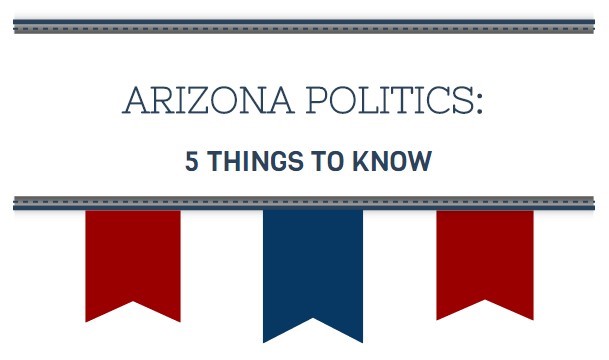July 18,2017 | Triadvocates

1. The Arizona Legislature recently created an ad hoc committee to look at the taxation of digital goods. The committee will be tasked with analyzing current Arizona tax policies of digital products and exploring how other states treat these items. Another significant part of this study will be an evaluation of how the Department of Revenue is approaching the issue, as some believe the agency is overtaxing certain goods. The committee is expected to meet for the first time in late July or early August. For a link to the committee announcement, click here.
2. On July 1, the last portion of Proposition 206 (The Fair Wages and Healthy Families Act) became effective. Approved by more than 58% of voters last November, the Act establishes a new state minimum wage that kicked in last January, and entitles employees to accrue earned paid sick time. Just two weeks after taking effect, employers around the state have been scrambling to comply with this new section regarding sick leave, as the new system has different rules for large and small companies. For more information about the new regulations, click here.
3. Earlier this month, the Arizona State House of Representatives created an interim committee to conduct another review of the Public Safety Personnel Retirement System (PSPRS). This new committee has met twice (in Flagstaff and Bisbee) and intends to meet five or six more times in other towns around the state to hear from local governments about how they are dealing with the increased cost of public safety pensions. The Legislature has passed several major reform packages since 2011, so it is unclear what else can be done to the system. In fact, the last major reform just became effective on July 1, 2017. Nevertheless, the committee is looking for any and all ideas in hopes of lowering the cost to our cities.
4. Later this week, a group of Arizona legislators will head to Denver for the American Legislative Exchange Council (ALEC) Annual Meeting. Considered a much more conservative legislative organization, ALEC’s meetings serve as a forum for Republican legislators from across the country to share model bills with fellow lawmakers, who then submit them to their state legislatures—sometimes verbatim. Many of the ideas discussed this week will likely make an appearance in Arizona next session. The legislative organization better known for its tie to Democrats, the National Conference of State Legislatures (NCSL), will hold its annual meeting in Boston next month.
5. Since taking office, Gov. Doug Ducey has advocated for a new strategy to address Arizona’s pressing water supply needs and has stressed his desire for the state to speak with “one voice” on Colorado River matters. In an effort to ensure there is only one statewide approach to water issues, the governor established the Governor’s Water Process Plenary Group, which will make recommendations on legislation, rules and policy ideas based on information fed from two working groups. While details remain murky, the Governor’s Office has identified top priorities for the working groups, along with suggested changes to the current governance of the Central Arizona Water Conservation District (CAWCD)—the 15-member, statutorily established body responsible for governing the Central Arizona Project (CAP) canal and related groundwater recharge programs. Many of the proposed measures have sparked controversy among water conservation groups, like changes to CAP’s board structure, a prohibition on contracting for federal lobbying, regular financial and performance audits, and affirmation that CAP doesn’t have sovereign immunity. While CAWCD’s former general counsel says that in his 30 years at CAP, he has “never seen a greater threat to the district than the governor’s initiatives,” House Speaker J.D. Mesnard says the effort is characterized as the state being proactive in order to prevent any future water crises. According to Mesnard, the meeting schedule for the two working groups is “aggressive,” and could have some finality by early fall, which would open up the possibility of a special session.


(Photo Credit: Jesse A. Millard, AZ Big Media)
Last month, Lyft celebrated the launch of its Lyft Hub office in Phoenix with local transportation leaders, elected officials, nonprofit groups, business execs, dozens of reporters and, of course, its drivers. The ribbon-cutting ceremony featured remarks from Phoenix Mayor Greg Stanton, Matt Clark (Transportation & Local Government Policy Advisor to Governor Ducey), Gonzalo de la Melena, Jr. (President & CEO, Arizona Hispanic Chamber of Commerce) and Steve Zylstra (President & CEO, Arizona Technology Council). Located in the Cotton Center building off 40th Street and Broadway Road, the 3,800-square-foot office houses Lyft’s 12 full-time employees and offers a driver’s lounge for current drivers and on-boarding area for new drivers. Free to drivers and employees, the Hub is filled with free snacks, jars of candy and cookies, an espresso machine, cold brew coffee keg and a refrigerator filled with Hubert’s lemonade. With the launch in Phoenix, Lyft now has Hub offices in 11 cities nationwide.
